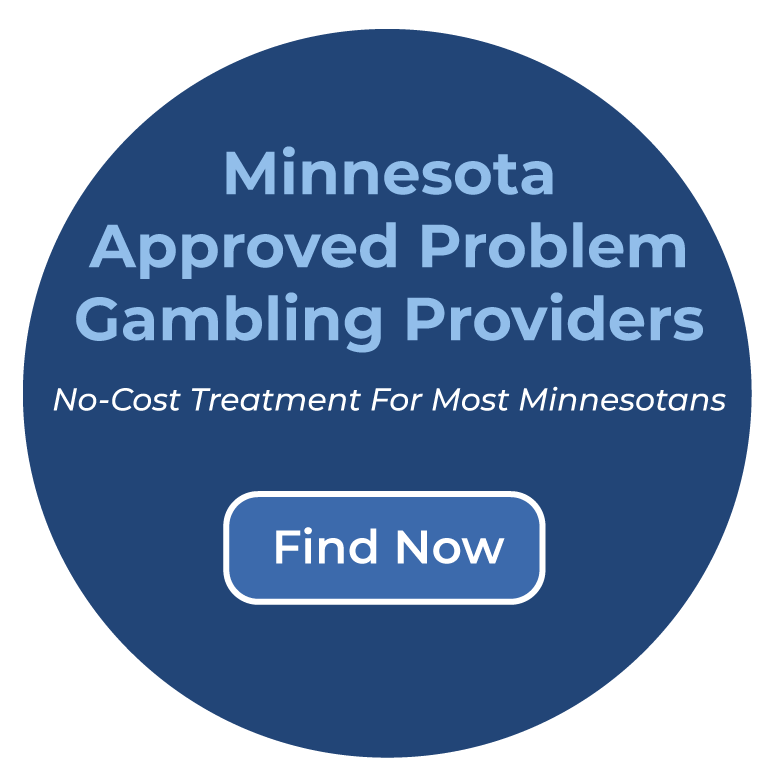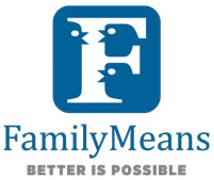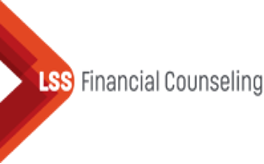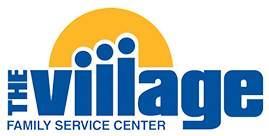Gambling Addiction
CONCERNED OTHERS
FAMILIES AND CONCERNED OTHERS OF THOSE LIVING WITH GAMBLING ADDICTION
Family, friends and co-workers may experience the negative impacts of one’s addiction long before the gambler seeks help, if they do at all. Families often express disbelief and shock when they learn their family member has gambled away their life savings. In addition to the financial impact, families may also feel intense shame as a result of the loved one’s gambling addiction.
In Minnesota, help is available for families with someone who has a gambling addiction. Treatment is often available at no cost, and families may seek 12 hours per year with a state–approved counselor, regardless of whether the gambler seeks counseling.
MINNESOTA APPROVED PROVIDERS
Carver County
Resilience Counseling
(612) 750-3376
dahnertmary@icloud.com
1107 Hazeltine Blvd, Suite 410, Chaska, MN 55318
Goodhue County
Midwest Recovery
(651) 846-9010
Info@midwestrecovery.org
midwestrecovery.org
217 Plum Street, Suite #130 Red Wing MN 55066
Hennepin County
Club Recovery Inc
(952) 926-2526
cjohnson@clubrecoveryllc.com
clubrecoveryllc.com
7701 York Ave S, Suite 350, Edina, MN 55435
Connections Counseling & Recovery Services
(763) 370-8880
Joyce Terhorst
joyce.connections@yahoo.com
7550 France Ave S, Suite 220, Edina, MN 55435
Midwest Recovery Inc
(612) 584-4858
info@midwestmn.com
midwestrecovery.org
1620 Central Ave NE, Suite 107, Minneapolis, MN 55413
Problem Gambling Intervention, LLC
(612) 558-5364
Roger Anton
rpanton@juno.com
Minneapolis VA Medical Center, 1 Veterans Drive, Minneapolis, MN 55417
Vinland National Center OP Services
(763) 479-4882
Don Raasch
donr@vinlandcenter.org
vinlandcenter.org
675 NE Stinson Blvd #200, Minneapolis, MN 55413
Itasca County
Lakeview Behavioral Health
218-327-2001
info@lakeviewbh.com
www.lakeviewbh.com
516 S. Pokegama Ave, Grand Rapids, MN 55744
Mille Lacs County
Freedom Center
(763) 308-0006
Cynthia Naumann
maumann.cindi@gmail.com
freedomcenterinc.org
140 2nd Ave NE, Milaca, MN 56353
Olmsted County
Christina Pristash
(507) 202-0701
Christina Pristash
pristashlmft@gmail.com
counselingrochester.org
1500 1st ave NE, Suite 120, Rochester, MN 55906
Ramsey County
Alcohol and Gambling Assessments
(651) 485-6229
Renee Collova-Bergee
reneebergee@comcast.net
1397 Geneva Ave N #102A, Oakdale, MN 55128
Pathways Counseling
(651) 734-5517
Jarrod Brown
jerrodb@pathwayscounselingcenter.org
1919 University Ave W, Suite 6, St Paul, MN 55104
Progressive Individual Resources, Inc.
(612)749-3309
info@pirimn.org
pirimn.org
2147 University Ave W, Suite 206, St Paul, MN 55114
Rice County
Midwest Recovery
651-846-9010
info@midwestrecovery.org
midwestrecovery.org
303 1st Street NE, Suite #365 Faribault, MN 55021
Saint Louis County
Center for Alcohol & Drug Treatment Gambling Services
(218) 723-8444
Paul McCormick
pmccormick@cadt.org
cadt.org
314 West Superior Street Suite 400, Duluth, MN 55802
Sherburne County
Freedom Center
(763) 308-0006
Cynthia Naumann
naumann.cindi@gmail.com
freedomcenterinc.org
105 6th Ave S, Princeton, MN 55371
Washington County
Bridges and Pathways Counseling
(612) 719-7966
Paul Mladnick
mladnick.paul50@gmail.com
1068 S Lake St, Suite 109, Forest Lake, MN 55025
Venthouse Counseling, Jason Walter
(612) 562-6766
Jason Walter LPC, LADC
aadrjay@gmail.com
venthousecounseling.com
8530 Eagle Point Blvd, #100, Lake Elmo, MN 55042
Alcohol and Gambling Assessments
(651) 485-6229
Renee Collova-Bergee
reneebergee@comcast.net
1397 Geneva Ave N #102A, Oakdale, MN 55128
Yellow Medicine County
Project Turnabout/ Vanguard Center for Compulsive Gambling
(320) 564-4911 or 1-800-862-1453
info@projectturnabout.org
projectturnabout.org
660 18th St, Granite Falls, MN 56241
Cass
Soul Solutions
(701) 356-7772
info@soulsolutions.org
soulsolutions.org
1801 38th St S, Fargo, ND 58103
What Should I do?
I’ve discovered my spouse/friend has a gambling addiction

Determine ways in which you can keep your family assets safe. Seek advice from an attorney and/or financial planner.

If you’re in a safe relationship, start the conversation.

If you have children, talk with them with age-appropriate explanations.

Connect with GamAnon. This peer support group is specifically for families who have been harmed.


Seek out emotional help. No-cost counseling is available to families. Find a provider near you or use telehealth services.

Two voluntary, self-exclusion tools for online gambling sites.
Given that many gamblers may be moving online, especially during COVID-19 times, MNAPG is offering individual subscriptions for an online self-exclusion tool called Gamban. This tool enables the gambler to block tens of thousands of online gambling sites on all devices. MNAPG has purchased one-year subscriptions that can block up to 15 devices in one household.
If you are interested, please email sstucker@mnapg.org and a link will be provided to set up the account.
BetBlocker helps you, or those you care about, ensure that they can manage their access to gambling in a safe and appropriate manner. Whether that means restricting altogether, or limiting during periods of vulnerability, BetBlocker can help. Visit www.betblocker.org to download this free app.
Families need to protect themselves before the gambler can deplete their family assets. Limiting or prohibiting access to family assets may be the first necessary step to take if the family hopes to rebound.
Develop a Personal Financial Recovery Plan to include:
- comparison of expense and debt obligations with income,
- creating a debt list (balance, payment, status and timeline),
- devising strategies to change income, change expenses or both when expenses exceed income,
- identifying trusted family member/friend to assist management of personal finances,
- allowing for follow-up telephone consultation with financial counselor during transition/re-entry to life after treatment program.
A Minnesota statewide financial resource center
Need Help Paying Bills
Workbook for Download
Personal Financial Strategies for Loved Ones of Problem Gamblers Handbook, National Endowment for Financial Education, 2000.
Minnesota Financial Counseling Resources
Gamblers seeking a debt management plan can work with either of these credit counseling centers in Minnesota:
Families and affected others need to understand that they cannot fix the person with a gambling addiction. Even if they try to blame you, their addiction is not your fault. They need to take responsibility for themselves and their own well-being. What concerned others want most of all is to relate to people who understand what they are going through. Seeking out a Gam-Anon group could prove to be a helpline for the family.
Treatment is also available for family members even if the gambler chooses not to seek treatment. Call the MN Problem Gambling Helpline at 1-800-333-HOPE or text “HOPE” to 53342.
1. DENIAL PHASE
- Makes excuses for gambling
- Considers gambling temporary
- Socially accepted
- Accepts increased gambling
- Rewards from gambling: gifts, trips, time together, share winnings
- Questions unpaid bills
- Keeps concerns to self
- Easily reassured
- Accepts remorse of gambler
- Relief: finances are better
2. STRESS PHASE
- Spouse spends less time with family
- Arguments
- Spouse feels rejected
- Attempts to control gambling
- Provides bailouts
- Isolation
- Late bills
- Loss of intimacy
- Insecure about future
3. EXHAUSTION PHASE
- Intense resentment
- Confusion
- Thinking impaired
- Physical symptoms
- Immobilization
- Rage
- Doubts sanity
- Anxiety – panic
4. HOPELESSNESS PHASE
- Suicidal thoughts and attempts
- Arrests
- Divorce
- Increased alcohol consumption
- Emotional breakdown
- Withdrawal symptoms
WAGER: Rwandan study indicates existing family dysfunction can elevate risks of gambling harms.
What are the psychosocial correlates of gambling problems? Does family dysfunction moderate the relationship among gambling problems and negative outcomes, including drug misuse, alcohol dependence, anti-social behavior, and poor sleep quality? READ MORE
In Their Own Words – Diane’s Story
The story of Diane, the wife of someone with a gambling problem, illustrated the struggle of a concerned other and how the couple survived a gambling addiction. READ MORE
Coping with Another Person’s Gambling Problem
A paid article appearing in the Star Tribune, along side a digital ad. Coping with Another Person’s Gambling Problem By...
Tips for Parents from a Recovered Gaming Addict
Standing strong and being firm in the values you hold for your family will help avoid gaming addiction in kids. READ MORE
EFFECTS OF gambling addiction ON FAMILIES AND THE COMMUNITY
GAMBLING ADDICTION IS A PUBLIC HEALTH ISSUE. Why? It not only impacts the individual gambler, but results in harms to families, friends, work colleagues and the overall community. As gambling expands with online gaming and sports betting, more and more people will have easy access and potential to experiencing harms through gambling.
Gambling problems can have profound impacts on the family. Families are often shocked to learn how much money has been lost. Some relationships do not survive a gambling addiction, while other families struggle through difficulties and work to grow stronger together.
Family members should avoid making important decisions about family relationships while under stress. Given that people can and do recover from gambling addiction, counseling can help you explore your options and determine what is best for you and your family.
Living with a loved one’s gambling problem can be emotional and stressful. The following are normal reactions that can enable the gambler or help to hide the problem:
- Desire to be perfect or “pick up the slack.”
- Need to keep everyone happy and show them that they are not the cause of the problems.
- Rebellion, to draw negative attention away from the gambler.
- Apathy, withdrawal or isolation.
- Trying to make the gambler feel guilt or shame.
- Being defensive, making apologies to family and friends or employee.
- Controlling, trying to set limits physically or emotionally on the gambler.
- Blaming them.
As you try to sort out your reactions, begin by thinking about the effect another person’s gambling is having on your life. And remember, help is available for family members who are close to a problem gambler!
The fallout from gambling addictions can also lead to severe depression.
If you think you are depressed or overly anxious, speak to your family doctor or other health care professional. Be sure to tell them about the gambling problem.
Physical and Emotional Abuse
Domestic violence happens most often when families are in crisis. Gambling problems can lead to the physical or emotional abuse of a partner, parent or child. If this is happening in your family, get help right away!
Since gambling and gambling-related activities are frequently carried out during work hours, coworkers are often in the best position to spot employees with gambling problems.
The workplace is primarily affected through lost time, lost productivity and, in desperate situations, the gambler may resort to theft.
Colleagues may notice more emotional distress by either the gambler or a gambler’s loved one as they face the increasing pressures presented by this addiction.
Physical and emotional health problems associated with excessive gambling can further diminish work performance and attendance. Depression, anxiety, high blood pressure or stress-related illness can surface in individuals with gambling-related problems and their family members.
GAMBLING IN THE WORKPLACE
The normalization of gambling has been fostered by workmates offering to set up fantasy football or basketball brackets during college tournament time. While this is not sanctioned gambling, it falls way below authorities’ radars and is considered harmless. However, for the workmate in recovery, who may be keeping their recovery private, these kinds of activities as well as other kinds of gambling activities – raffles, pooled lottery tickets, etc. can be triggers for those new to their recovery journey.
Workplace Signs of a Gambling Problem
- Work performance deteriorates; the person is preoccupied, has trouble concentrating, is absent or late for meetings and misses assignment deadlines.
- Frequent unexplained absences or disappearances from work.
- Eager to organize and participate in betting opportunities.
- Pay is requested in lieu of vacation time; large blocks of vacation time are not taken.
- Frequently borrows money, argues with co-workers about money that is owed to them.
- Complains about mounting debts.
- Excessive personal calls.
- Experiences mood swings often related to winning and losing streaks.
- Credit card or loan bills are mailed to work rather than home.
- Increasingly spends more time gambling during lunch hours and coffee breaks.
- False claims are made against expense accounts.
- Theft of company property.
Remember, gambling addiction is an addiction and should be acknowledged in one’s employee assistance plan. Consult your human resource department for further information.
For every individual with a gambling addiction the lives of at least seven other people who are close to him or her are adversely affected. Parents, spouses, brothers, sisters, children, employers and fellow employees must deal with the impact of gambling addiction. There can be significant social impacts resulting from gambling addiction which can generate “hard” economic costs for states, communities and individuals.
The National Council on Problem Gambling estimates that gambling addiction carries an annual cost of $7 billion in bankruptcy, co-occurring disorders and crime.
Other impacts on the community include:
- domestic violence, neglect of children and family and senior abuse,
- relationship break-ups/divorce,
- job loss, unemployment,
- debt, bankruptcy,
- eviction-forced home sales or foreclosure,
- embezzlement, fraud, check forgery,
- crime, arrest, incarceration,
- poor physical and mental health, and suicide.
Gambling addiction causes severe financial, emotional, social and sometimes physical problems for the gambler and their family. Coping with the negative consequences of gambling addiction can be overwhelming, leading to feelings of shame, guilt and hopelessness.
The National Council on Problem Gambling has reported that about 20% of those diagnosed with disordered gambling attempt suicide – a higher percentage than any other addictive disorder. The families of problem gamblers are also at a higher risk of suicide for many of the same reasons. Some studies suggest that the worse the addiction, the more likely it is that the gambler will attempt suicide.
If you or someone you know is talking about suicide, call the national suicide helpline number at 1-800-273-8255 or call the Minnesota Problem Gambling Helpline at 1-800-333-HOPE or text “HOPE” to 53342.
Communication between and within families
Frequently, family members are in denial. Some may think they are helping by bailing out the gambler without seeing the ramifications it has for the spouse or children. Additionally, lack of communication is emotionally straining and isolating for concerned others.
Social implications
Unfortunately, there continues to be a lot of shame and stigma about gambling disorder. Families are reluctant to share their situation with other family members or friends. Keeping this secret is yet another stress. One way to alleviate some of the stress is connecting with a trusted community elder or faith leader, who can offer support in a trusted space.
Honesty
A big part of recovery for both the gambler and family is honesty and trust. The lies and broken trust from the gambler can be difficult to repair. It’s an essential part of one’s recovery to be honest and to have open communication. Most benefit from having someone facilitate those initial conversations. Family counseling is available at no cost in Minnesota, even if the gambler refuses to seek help.
To start a conversation:
- Choose a time when there are no distractions and it’s a comfortable place to have a conversation.
- Let the gambler know you care about them and tell them you’re concerned about how they’re acting.
- Explain exactly what they have done that concerns you.
- Share how their behavior is affecting other people – be specific about what you expect from them (“I want you to talk to someone about your gambling”) and what they can expect from you (“I won’t cover for you anymore”).
- After you’ve shared your observations and feelings, allow them to respond and listen with a non-judgmental attitude.
- Let them know you are willing to help, but don’t try to counsel them yourself.
- Provide information, not advice.
Next steps:
- Encourage the family member to take positive steps to deal with their gambling.
- Make steps to seek counseling 1-800-333-HOPE and/or attend a help group (Gambler’s Anonymous, SMART Recovery, etc.)
- Consider self-excluding from local gambling venues.
- If online gambling is an issue, get a free subscription to Gamban or BetBlocker.
- Consider a True Link credit card
- Seek financial consultation or counseling.
- Families are eligible for free counseling in Minnesota, whether or not the gambler is willing to seek help. Call the Minnesota Problem Gambling Helpline at 1-800-333-HOPE or text “HOPE” to 53342.
Tools and Resources
Families should seek financial counseling, with or without the gambler, as they need to protect themselves. Here are some things families can do:

Develop a financial plan which compares expenses and debt with income

Limit the gambler’s access to credit. Apply for credit in your name only
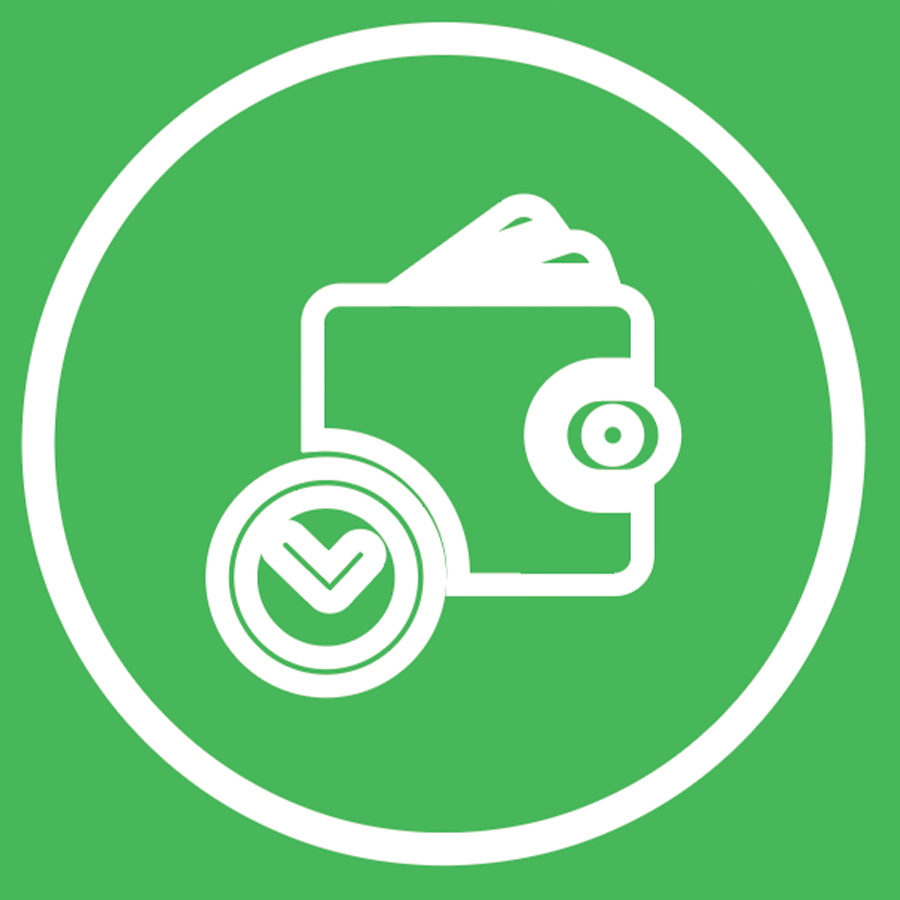
Limit the gambler’s access to cash; create daily limits

Investigate other financial tools that can help to protect the family and their assets

Develop strategies to address financial limitations
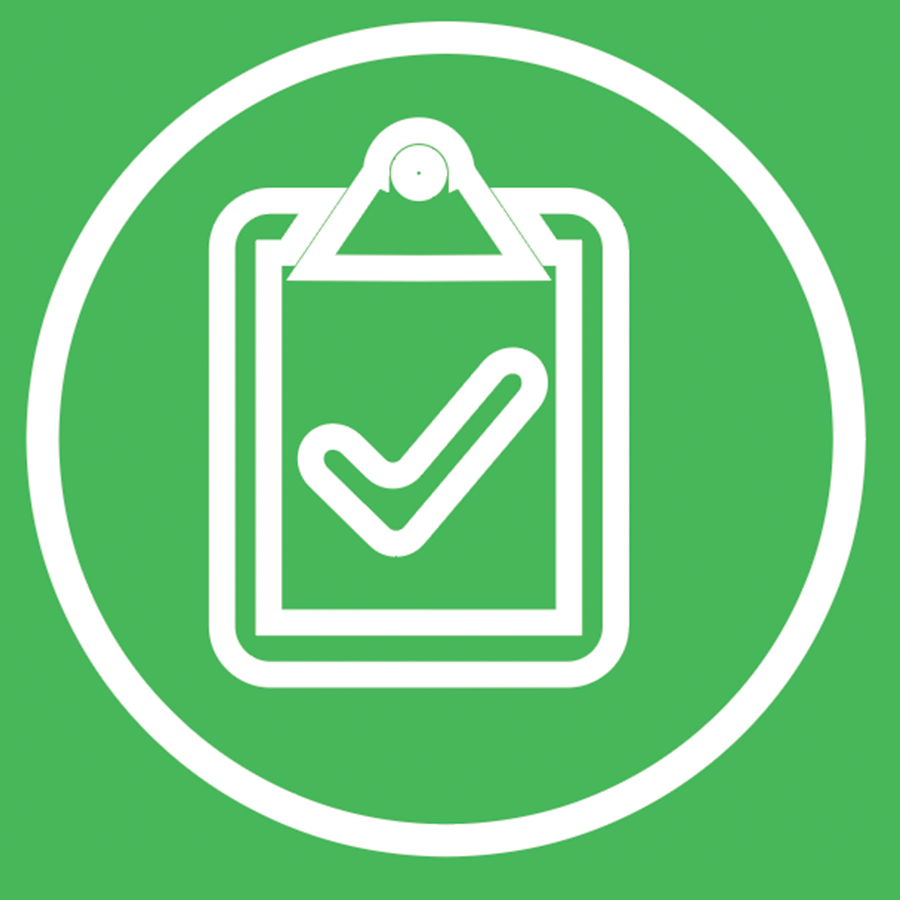
Identify debt list
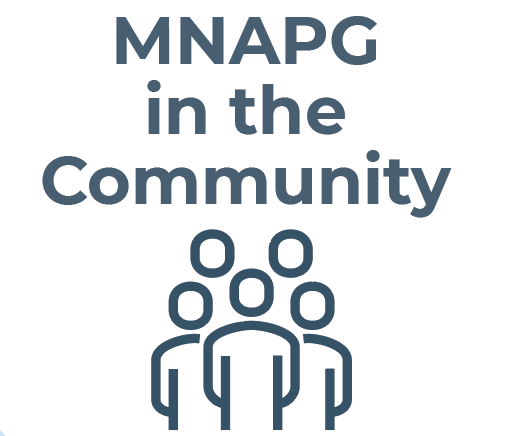
A list of our most sought after presentations can be found here.
COMMUNITY OUTREACH PRESENTATIONS
Community outreach is an important part of our mission. MNAPG is available to present on a series of issues pertaining to problem gambling such as an introduction to problem gambling, gaming disorder, gambling as a co-occurring addiction, to name just a few topics. These can be geared towards community and school groups to professionals in the addiction, mental health or other professions that are impacted by problem gambling, such as attorneys, employee assistance programs, to community groups. These visits can be arranged anywhere in Minnesota and are free of charge. The purpose is to broaden the awareness of gambling disorder and who it affects, initiate conversations about prevention, highlight the importance of healthy play and making the public aware of available treatment assessments and options available at little or no cost.
To learn more or to arrange a visit, contact MNAPG Community Educator, Sonja Mertz, smertz@mnapg.org or 612-424-8595 x3.
View or Request
3 Questions
Take Our Quiz
SELF-HELP PUBLICATIONS
View, download or order a hard copy below (These are meant to be supplemental guides, not a replacement for therapy)
- Your First Step to Change, 2nd Edition. A self-help toolkit of resources to help start the journey toward recovery from problem gambling behavior.
- Personal Financial Strategies for the Loved Ones of Problem Gamblers
BROCHURES
- Warning Signs of Problem Gambling (English, Spanish, Chinese, Hmong and Vietnamese)
- What Families Can Do When a Loved One has a Gambling Problem (English and Spanish)
- What is Problem Gambling? (English, Somali and Spanish)
- Gambling When in Recovery (English and Spanish)
- Gaming Disorder (English and Spanish)
- Gamban—Block Access to Your Devices (English and Spanish)
- Lower Risk Gambling Guidelines
- Older Adults and Gambling
- Talking to Your Child About Gaming
- Youth and Gambling—What Parents Need to Know
BROCHURES for professionals
- Be Part of the Solution (English and Spanish)
- Why Screen for Gambling Disorder? (English and Spanish)
Newsletter
- Northern Lights - MNAPG Quarterly Newsletter

